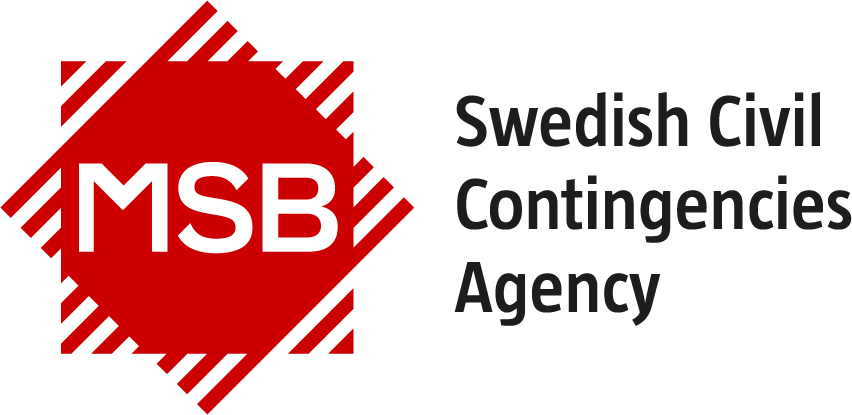If you need to evacuate
Evacuation means that people need to be removed from an area if their lives or health are threatened. Here are some tips about what to pack.
In Sweden, we have not yet had to evacuate any large residential centres. But the world has become more uncertain and extreme weather events will become increasingly common. So, in Sweden we need to be prepared to evacuate areas and move people to a safer place.
Some events that could lead to an evacuation include:
- Storms, floods, and snowfall.
- Loss of electricity, heat, and water.
- Hazardous material spills and contamination.
- Nuclear accidents.
- Fires.
- Acts of terrorism.
- War and the threat of war.
Once government authorities have announced an organised evacuation, they are responsible for:
- Ensuring that anything left behind (such as a house) is protected as far as possible.
- Ensuring that you are provided accommodation elsewhere.
- Ensuring that drinking water and food are available.
- Ensuring that the evacuation does not last longer than necessary.
Who decides when to evacuate?
In the event of an accident, such as a fire, the rescue services, through the rescue leader, ordinarily declares the need for an evacuation. The police may also decide to evacuate people if there have been threats to order or public safety. Special procedures exist if radioactive substances are released. Sometimes, people choose to leave a threatened area of their own accord. This is called spontaneous evacuation, and you are required to find a secure location on your own.
Everyone must leave
Government authorities strive to consider people’s varying needs. It's important that children are protected, that friends and families remain together, and that no one is discriminated against on the basis of things like gender, age, ethnicity, language, political opinion or disability.
Think it through!
Think in advance about what you would bring if you had to leave your home. Keep important papers and items where you and other family members can easily find them. If you need to leave your home quickly, be sure to tell everyone – especially children and the elderly. Personal items for children can provide reassurance. Don't forget to help those who can't pack themselves. Switch off gas and electricity and lock the doors.
Important documents
Some of the items on this list relate to important documents and records that we consider important to have on paper. Should a crisis affect many people at the same time and there is no access to digital systems, easy identification and verification will help the community provide support to those who need it most.
The lists may not be complete for you and your family and are intended as guidance.
Checklist for minor evacuation
A minor evacuation may involve removing a few people from a house, dwelling or neighbourhood; for example, due to a fire. People can usually return home after a few hours or a day.
Make sure to bring:
- Identification documents.
- Medicines and medical aids such as glasses, contact lenses, hearing aids, dosette box, or walker/rollator.
- Something to eat and drink.
- Warm clothes.
Checklist for large-scale evacuation
A major (large-scale) evacuation covers a city, neighbourhood or a large geographical area. It lasts for a long period of time and affects many people, animals and essential services such as hospitals, elder care, schools and kindergartens, businesses and industries. Some good things to bring:
- ID documents.
- Medicines and medical aids such as glasses, contact lenses, hearing aids, dosette box, or walker/rollator.
- Something to eat and drink.
- Warm clothes.
- Payment cards.
- Cash.
- EU health insurance card.
- BankID.
- Mobile phone and charger.
- Keys.
- Computer and power cord.
- Prescription for medicines.
- Car charger for mobile phone.
- List (on paper) of important phone numbers.
- Radio powered by batteries, solar panels, or winding mechanism plus extra batteries.
- Registration papers for all vehicles, title deeds, marriage certificates, list of bank accounts, etc.
If you feel worried
We live in a time of threats that can create anxiety and worry. The krisinformation.se website provides support for coping with your concerns.
